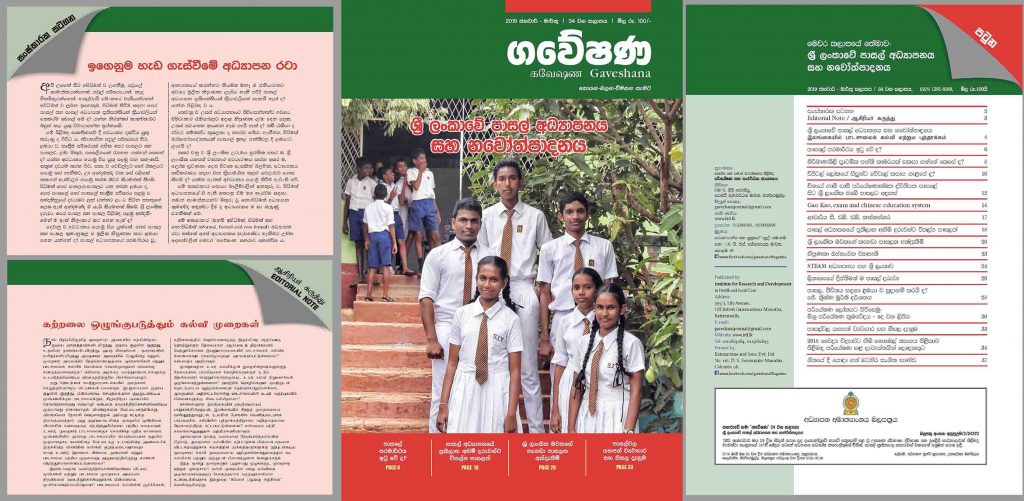
The Modes of Education that Shape Learning
We learn, from the time that we are born into this world, in an informal manner. Contribution are made to this informal learning by family members & relatives close to us, the home environment, peers, neighbors and valued members of our community. Preschool & school policies attempt to formalize this learning. The relevance of the preschool and school processes for learning is a debated issue and ought to be subject to frequent discussion. There are many points of concern with regard to this, that require careful evaluation.
The first concern to which our attention must be focused, is whether the manner in which the child is introduced to the preschool & school environment, from the natural home environment, is child friendly. Children entering formal preschools & schools for the first time, are said to often have an expression of confusion, not unlike that purportedly seen in animals that are caught in the sights of a hunting instrument. Therefore, is the Sri Lankan child’s first experience with formal education, one that leaves them bewildered?
The second point for consideration is the manner in which preschools & schools foster a child’s competencies. The ambition of school education is to prepare children so that they can engage in any form of gainful employment in the future. However, has an effective formal education policy & plan of action been prepared to ensure the fulfillment of this goal?
The third issue is one regarding the quality of guidance received by school students, during their senior years, in relation to their career path and options for higher education. This is coupled with concern over the ability of higher education institutes to effectively develop a student’s competencies, inline with their selected career path.
The fourth consideration is whether a timely action plan has been presented for modernizing the education system. One that preserves Sri Lankan heritage & foresters Sri Lankan values; while remaining open to global developments and opportunities.In addition to formal education, there are also methods of non-formal education familiar to members of society. It is the responsibility of the education system, in order to cover any lapses in the formal education, to incorporate these non-formal modes of education.
This volume of the Gaveshana magazine contains thoughts and ideas for molding our system of education within these three modes of education (informal, formal, & non-formal).
The 34th issue of the Gaveshana magazine is now available at;
Sarasavi bookshops
for
Subscription & Further Information
please contact us at,
Gaveshana Magazine